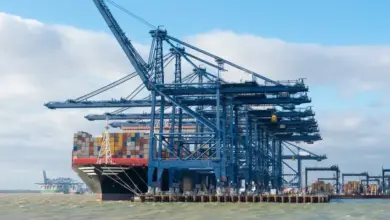Five months after the 25 January revolution began, Egyptians have re-occupied Tahrir Square, driven by a growing sense of disillusionment at the ruling Supreme Council of the Armed Forces’ (SCAF) management of the post-revolution transition process.
The protest began with a televised salute for those who died in February, followed by the replaying of a slew of statements by the military leadership in which it repeatedly reasserts its respect for revolution’s martyrs. But for the families of the some 900 who died and the thousands continuing to occupy the square, these gestures remain little more than lip-service.
Prosecutions, reparations, truth-seeking and institutional reform are some of the inseparable and essential elements of transitional justice, but the process in Egypt has so far been piecemeal, incoherent and slow, says Moataz El Fegeiry, the International Center for Transitional Justice’s deputy director for the Middle East and North Africa region.
“Victims feel ignored because their demands have not been satisfactorily met by the government – there has been no genuine effort to provide them with an effective remedy and reparation,” Fegeiry continues.
“The main problem is we lack a holistic approach to deal with justice in transition: Egypt lacks a clear vision for the transitional period. In Tunisia the transitional process is more organized, because civilians consult each other, civil society is consulted, and there is transparency. Here SCAF doesn’t do anything without popular pressure.”
SCAF’s approach to transitional justice has largely been limited to the criminal investigation of regime figures – and even this most fundamental aspect of justice has been a response to intense public pressure.
Former President Hosni Mubarak was charged in April – giving him two months to hide evidence against himself. Last week, four high-profile figures were found innocent of charges against them.
Also last week, the coastal city of Suez erupted in anger when police officers accused of killing protestors during the revolution were released on bail.
“The release of defendants on bail demonstrates that the judge does not feel the evidence is sufficient to order pre-trial detention. Evidence gathered so far will not result in solid convictions,” Fegeiry says.
Lawyer Mohamed Abdel-Aziz of the Al-Nadeem Center for Rehabilitation of Victims of Violence alleges that weak cases are both the result of rushed investigations and drawing-up of charges, and pressure from the Attorney General.
Abdel-Aziz points to the example of the case concerning the killing of protestors in Beheira. Police officers from the coastal town of Rashid were charged despite being completely unconnected with the murders.
The solution, Abdel-Aziz says, is for the court to use its powers under Article 11 of the Criminal Procedures Code, which allows it to perform the investigatory functions of the public prosecution office.
Tahrir protestors have repeatedly called for the removal of the Attorney General – a call Fegeiry supports. “The same attorney general who shielded the government from accountability cannot be expected to prosecute the regime. There is no confidence in the institutions that violated their rights to investigate what happened to them. Confidence-building measures are what are lacking”.
Fegeiry adds that domestic trials, as opposed to international tribunals like those established in Rwanda and Yugoslavia, “are the most difficult and controversial aspect of transitional justice. State institutions in transitional societies are fragile and there is intense power conflict within them.”
This power conflict is acutely apparent in the Interior Ministry, the institution Mubarak turned into his private army to suppress political dissent. Some 1000 people were injured during two days of clashes on 28 and 29 June between protestors and Central Security Forces (CSF), the latter of whom resorted to their favorite tactic: armed civilians deployed to attack protestors.
Last week Interior Minister Mansour al-Essawy announced a “purge” of the police force to come in mid-July, while on Saturday Prime Minister Essam Sharaf announced that all police officers accused of killing protestors will be dismissed from the force. Newspapers reported on Sunday, however, that Essawy has rejected Sharaf’s decision, saying that the Interior Ministry alone will decide how the police officers will be dealt with.
Human rights groups have repeatedly stressed the importance of security sector reform. Consultation sessions with civil society have not translated into the kind of major structural reforms necessary to rehabilitate the police force.
There has been no word from the government about how future police officers will be chosen, nor any indication as to whether current members of the force will be vetted to ensure that their records are clean.
Fegeiry suggests a host of reform measures, including collection and destruction of torture equipment from police stations, the use of international experts to provide training in investigation skills, and the establishment of a fully independent ombudsman office to receive and examine complaints about police violations.
At the start of July, SCAF announced the formation of a fund for relatives of the revolution’s martyrs, but its seemingly myopic vision of justice comes nowhere near the broad definition of reparations in international human rights law.
“The Egyptian government has an obligation to provide victims with reparations. This does not mean just financial compensation,” Fegeiry says, pointing to the example of South Africa, in which apartheid victims were offered psychological and physical rehabilitation, as well as free legal advice.
“The most important thing in providing reparations is providing victims with dignity. They are not taking a gift – it is an obligation, because the damage that occurred to them happened because of the state.”




